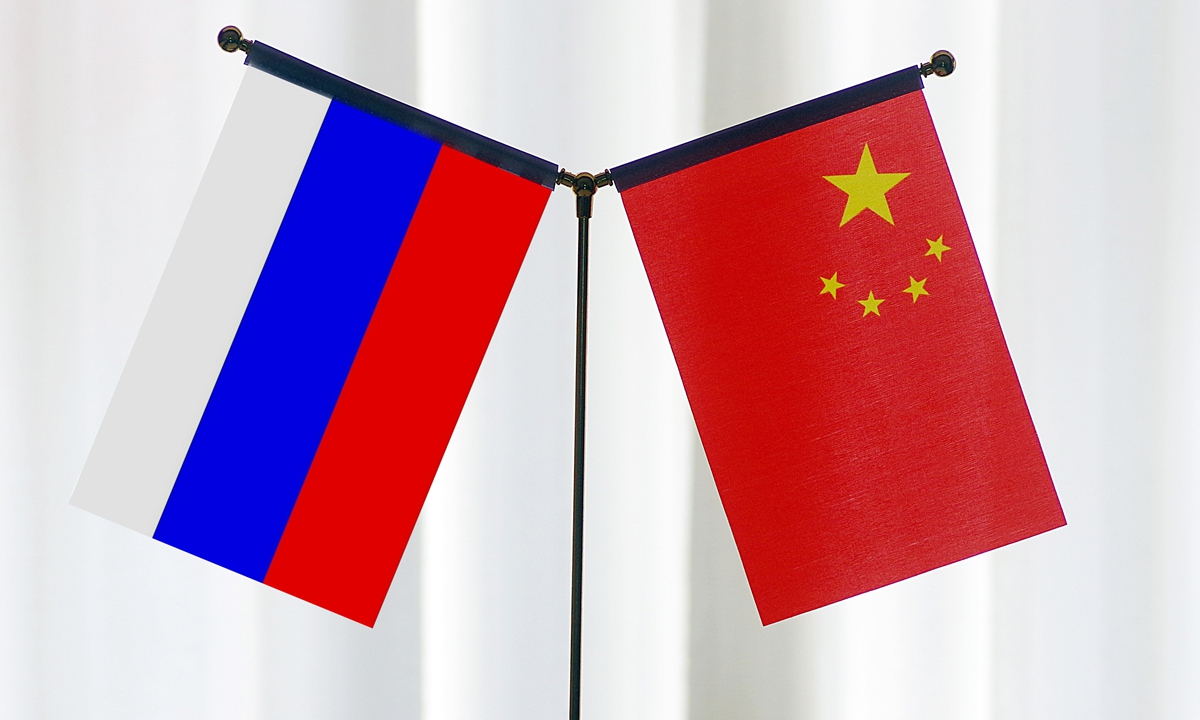Meeting of Chinese, Russian leaders injects stability into a world of change and disorder: Global Times editorial

China-Russia Photo: VCG
On the afternoon of September 15 local time, Chinese President Xi Jinping held a bilateral meeting with Russian President Vladimir Putin in Samarkand, Uzbekistan, to exchange views on China-Russia relations and international and regional issues of shared interest. It has become a conventional practice for Chinese and Russian heads of state to have bilateral talks on the sidelines of the summits of the Shanghai Cooperation Organisation (SCO). It is not only crucial for the stable development of bilateral relations that the two countries' heads of state to have regular in-person and in-depth exchanges of views, but it's also very beneficial for regional peace and stability.The atmosphere of the meeting was as positive and friendly as usual. President Xi noted that since the beginning of this year, China and Russia have maintained effective strategic communication, and that China will work with Russia to extend strong mutual support on issues concerning each other's core interests, and deepen practical cooperation in trade, agriculture, connectivity and other areas. President Putin said that the world is undergoing multiple changes, yet the only thing that remains unchanged is the friendship and mutual trust between Russia and China, and the Russia-China comprehensive strategic partnership of coordination is as stable as mountains. As uncertainty significantly increases in today's international landscape, the China-Russia comprehensive strategic partnership of coordination for a new era has always been on course and has not lost momentum.
China and Russia are each other's largest neighbors, permanent members of the UN Security Council, and emerging powers. They also share a long border of more than 4,000 kilometers. The China-Russia comprehensive strategic partnership of coordination for a new era, which is based on the principles of "non-alliance, non-confrontation and non-targeting of any third party," has been subject to interference and provocation from third parties. Especially after the beginning of the Russia-Ukraine conflict, the US has stopped putting on a disguise. Instead, it has openly threatened and discredited the normal and legitimate cooperation between China and Russia. Such a scenario is rare in the history of international relations.
The good thing is that both China and Russia are countries with strong strategic determination and autonomy. Moreover, bilateral relations have a strong internal driving force. They have not and will not change their initial intentions and course due to drastic changes in the international pattern or pressure from third parties. They will always maintain their own logic and rhythm. In particular, the heads of state of China and Russia maintain close contacts and strategic communication in various ways, always leading the ties between the two countries in the right direction of development. The independent and autonomous value of China-Russia relations is both a summary of historical experience and innovation in international relations.
It is unlikely that China-Russia relations will go into rift or confrontation as expected and promoted by the US and the West. At the same time, China and Russia did not form the so-called anti-US alliance. China and Russia have united to resist the political virus of the US and the West while opposing hegemonism. These are the voices of justice from independent powers under the current international situation. It is entirely different from the "anti-US alliance" with a bloc political nature in the Western opinion context. Out of dark psychology, the US and the West desperately try to "drive a wedge" between China and Russia, hoping to defeat the two one by one; meanwhile, it forcibly "binds" China and Russia together, hoping to target the two at once. But no matter how hard they try, China and Russia have firmly maintained the right direction of "building partnerships instead of alliances."
Such a choice made by China and Russia has made peace and cooperation a powerful force of inertia that has global significance, particularly today. Those uneasy or even fearful about this should reflect on and ask themselves, rather than spending their energy and thoughts on smearing others. The international community can clearly see that the US in recent years has strengthened the Five Eyes alliance, peddled Quad, pieced together AUKUS, and tried to create an "Indo-Pacific version of NATO." All these are the most destructive force in the international system with the UN at the core. The outbreak of the Russia-Ukraine conflict is fundamentally the consequence of the failure of the Western military and political bloc in handling equal relations with a regional power properly.
Under such circumstances, imagine that if the international community does not have another powerful enough force to really intervene, balance, hedge, and even reverse the situation from the direction of maintaining world peace and stability and promoting multilateral cooperation. The future of this world may well be tragic - a complete resolution of the Russia-Ukraine conflict is nowhere in sight, and potential crises elsewhere will be detonated. This is something that many countries, including China, do not want to see and are trying to avoid. From a certain level, this is the significance of the meeting between the heads of state of China and Russia. As President Xi pointed out, China will work with Russia to fulfill their responsibilities as major countries and play a leading role in injecting stability into a world of change and disorder.

